I just discovered that my blog comes up pretty close to the top of the list when you search the phrase "I wanted to write about music" at google.
I'm not sure that's a good thing or not. As a topic, it's not something I remember addressing directly, and I'm afraid it might mean that there was a bit too much musicology pedantry coming out. (Oy!) But, just so you're not disappointed:
Have you ever thought about good orchestral sunrise music? On this fall morning, blue bright and cloudless in Brno, the best sunrise music would have been the Entry of the Gods into Valhalla from Richard Wagner's
Das Rheingold, the first opera of the "Ring" cycle. It's bombastic, loud, and over the top pompous, as you might expect from triumphal Wagner, but there is a bittersweet twist. (And if you want
really pompous and bombastic, you can always listen to the Ride of the Valkyries from the next opera in the cycle.) The Entry music comes at the end of the first opera in the cycle; this opera is really more of an introduction (kind of like the role of
The Hobbit in the
Lord of the Rings series), albeit it a long one. This introductory opera is really about the moment when the gods—they are pretty much taken from Norse mythology (think large women with horns on their helmets, kind of the opera version of that cartoon Hagar the Horrible)—decide that they will leave earth for Valhalla. Their entry into Valhalla (or, as some translations have it, "float-up") ushers in the age of humans on earth. So, while this is triumphant, royal, godly, masculine music, it is not a signal of their ultimate power but rather their spent power. It's music that begins the passing of an Age.
The reason it's such great sunrise music is that, well, you might hear it as a sunrise. It opens with the shimmering, smooth, and flowing music that Wagner used to symbolize the Rhine river and its treasure, the magical gold that was hidden at the bottom of the river. So you get an impression of sparkling majesty that is calm, but still quickly moving. Kind of like those moments before you get the first direct rays of sun. The music slowly grows louder, brightening, and there are distant fanfares—the light grows brighter, the shadows become shallower, everything becomes clearer and more defined. There is a wonderful moment where two clarinets harmonize the river music in thirds and sixths with a harp accompaniment—a very pastoral moment interrupted by the double reeds (the killjoys). But that's what a sunrise is like; sometimes the daylight is a bit harsh when you're used to calmer night time. The ending is begun by the horns' entrance with an insistent, repeated fanfare in dotted rhythms. That's when the first direct rays of sunlight hit and you start getting that special intense light that's neither full day nor twilight. The music grows louder, and finally the dotted rhythm stops just as the music gets to its loudest point. The fanfares are kind of left hanging there above the sparkling string textures (you might say that it's the impression of a musical bridge). There is a great timpani moment here, where the drums drive the music into the suspended "bridge" moment and prepare the ending section. In the final section of the music, the sparkle and fanfares continue while the lower instruments join in with the Rhine theme. You get the impression of upward motion, as the gods are exiting over the river toward the light of the sun reflecting on the walls of Valhalla in the distance. This is supposed to be a sunset, but the order suggests a sunrise to me. Regardless, the bittersweet part is that this music is an ending of something at the same time it's a beginning; it's threshold music—nothing will be the same after it, whether it's a new day, a new night, or a new Age.
Some might say that they don't want to wake up to Wagner for ideological or aesthetic reasons; while those are valid complaints, it implies that you slept the night before. Plus, the next best alternative is Strauss's
Also sprach Zarathustra, which has the same problems. There is a sunrise in Grofe's
Grand Canyon Suite, plus probably a half-million others. The ambiguity of the Wagner, though, captures something more profound about the sunrise—that knowledge that it's not just a beginning but also an ending.
Read the Tommasini review of the new "American" Ring
here.
Tags:
music,
orchestra,
listening,
morning
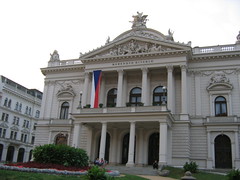
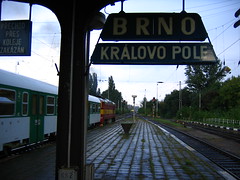
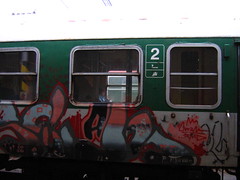
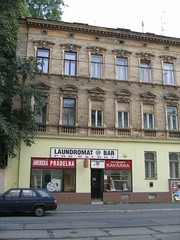
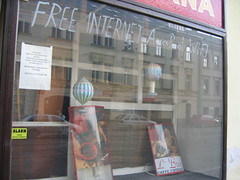


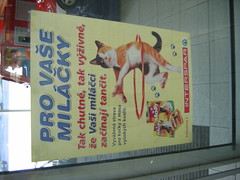
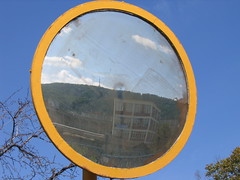
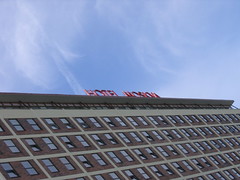
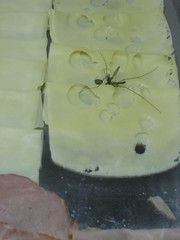
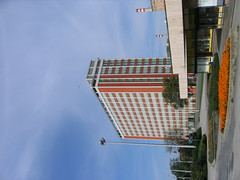
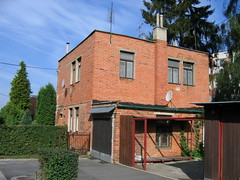
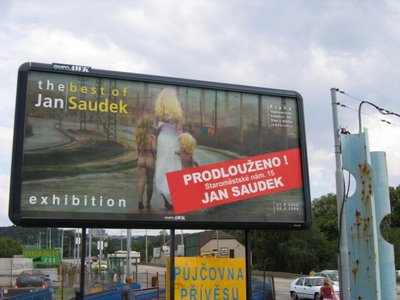
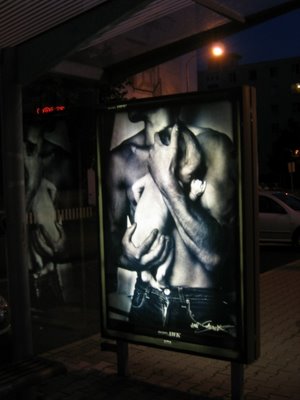

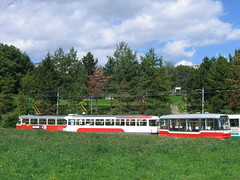
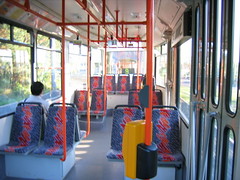


 A graduate student in music and anthropology writing a dissertation about music in Moravia, the eastern third of the Czech Republic. At some point, the Czech Republic's "second city" (that would be Brno) captured my attention, and I've since been blogging about events, arts, music, and other stuff—basically whatever interests me in and around the cityscape. I'm not living in Brno now, but I keep up with the cultural pulse from afar as best I can.
A graduate student in music and anthropology writing a dissertation about music in Moravia, the eastern third of the Czech Republic. At some point, the Czech Republic's "second city" (that would be Brno) captured my attention, and I've since been blogging about events, arts, music, and other stuff—basically whatever interests me in and around the cityscape. I'm not living in Brno now, but I keep up with the cultural pulse from afar as best I can.

